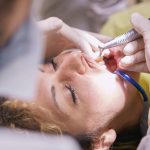
Teeth grinding, also known as bruxism, is a condition commonly seen in people during stressful periods or as a habitual response. Consequences can range from mild discomfort to serious oral health issues, including tooth damage and jaw disorders. In this exploration of remedies for teeth grinding, we’d like to help you with actionable information and various paths to relief and recovery.
Understanding Bruxism and its Impacts
Teeth grinding may happen subconsciously while you sleep or during the day. Over time, it can lead to worn-down teeth, increased tooth sensitivity, and even chronic jaw pain. Recognizing the symptoms early is key to preventing further dental health complications.
At-Home Remedies for Immediate Relief
-
Stress Reduction: Since stress often triggers teeth grinding, practices like meditation, deep breathing exercises, and physical activity can help alleviate tension.
-
Conscious Jaw Relaxation: Remind yourself to keep the jaw muscles relaxed and avoid habits that put additional strain on the jaw, such as chewing gum.
-
Warm Compress: Applying a warm cloth to the jaw area can soothe muscle pain and provide temporary relief from discomfort.
Professional Approaches to Managing Teeth Grinding
For those seeking more structured methods to address bruxism, an array of professional solutions are available.
Mouthguards and Splints
Mouthguards are often the first line of defense prescribed to patients. They serve to cushion teeth, protect enamel and prevent further grinding. Splints, which are typically made from harder plastic, are designed to fit precisely over your upper or lower teeth. Both solutions work by creating a physical barrier, reducing the damage done by grinding.
Behavioral Therapies
Behavior modification techniques can be effective. They aim to change the habit of grinding and include:
-
Biofeedback: Electronic instruments measure the muscle activity of your jaw and guide you in reducing the grinding action through relaxation techniques.
-
Cognitive Behavioral Therapy (CBT): CBT helps modify the behavior through individualized psychological support, addressing the underlying anxiety that may lead to bruxism.
Medications as a Last Resort
In certain severe cases, medications may be prescribed to manage bruxism. These can include muscle relaxants or, in some cases, medication to manage stress and anxiety. It’s essential to note that these are often considered short-term solutions and should always be used under the guidance of a medical professional.
Visiting the Dentist
A regular visit to the dentist is not just about checking for cavities; it’s an integral part of maintaining overall dental health. Especially for patients who have missing teeth, it’s crucial to consult with a dental professional. They can assess any potential damage from teeth grinding and advise on appropriate care or therapeutic procedures.
The Role of Dental Services
Investing time in finding quality dental services is vital. Seeking treatment options like an Albuquerque dentist can provide you with access to the latest protective devices, such as custom-made mouthguards and innovative treatment modalities.
Emphasizing Dental Care for Long-term Health
Teeth grinding might look like a solitary issue, but it’s part of a bigger picture. Good dental care should aim for a natural look and function, encompassing a wide range of practices and services to maintain optimal oral health.
Enhancing Your Dental Care Routine
To mitigate the effects of teeth grinding and to improve your overall oral health, consider incorporating these practices into your daily routine:
-
Professional Teeth Cleaning: Regular cleanings remove plaque build-up and reduce the risk of tooth decay and gum disease, both of which can exacerbate bruxism symptoms.
-
Dental Exam and Cleaning: Routine checks will not only keep your teeth in top shape but also allow for early detection and management of bruxism.
Dental Hygiene Tips and Oral Care Practices
Maintaining a robust dental hygiene regimen is critical in preventing numerous oral issues, including the exacerbation of teeth grinding.
Implementing Oral Care Practices
Here are key steps to keep your oral health in check:
-
Brushing and Flossing: Twice daily brushing and regular flossing preserve dental health and prevent conditions that might encourage bruxism.
-
Avoiding Hard Foods: If you grind your teeth, it’s advisable to avoid foods that put added stress on your teeth and joints.
-
Staying Hydrated: Proper hydration facilitates saliva production, which naturally protects teeth and gums.
Wrapping Up
While teeth grinding can be a disruptive condition, there are multiple treatment paths to explore. From simple home remedies and lifestyle adjustments to professional interventions such as custom-fitted mouthguards, medications, and therapy, you have a spectrum of options to consider. Prioritizing regular dental visits is fundamental to maintaining your dental health and addressing bruxism proactively.
Don’t overlook the importance of a comprehensive dental care routine, including both at-home and professional strategies to keep your smile bright, functional, and healthy. Remember, you’re not alone on this journey, and help is available to guide you to the most suitable treatment for your unique situation.




















































